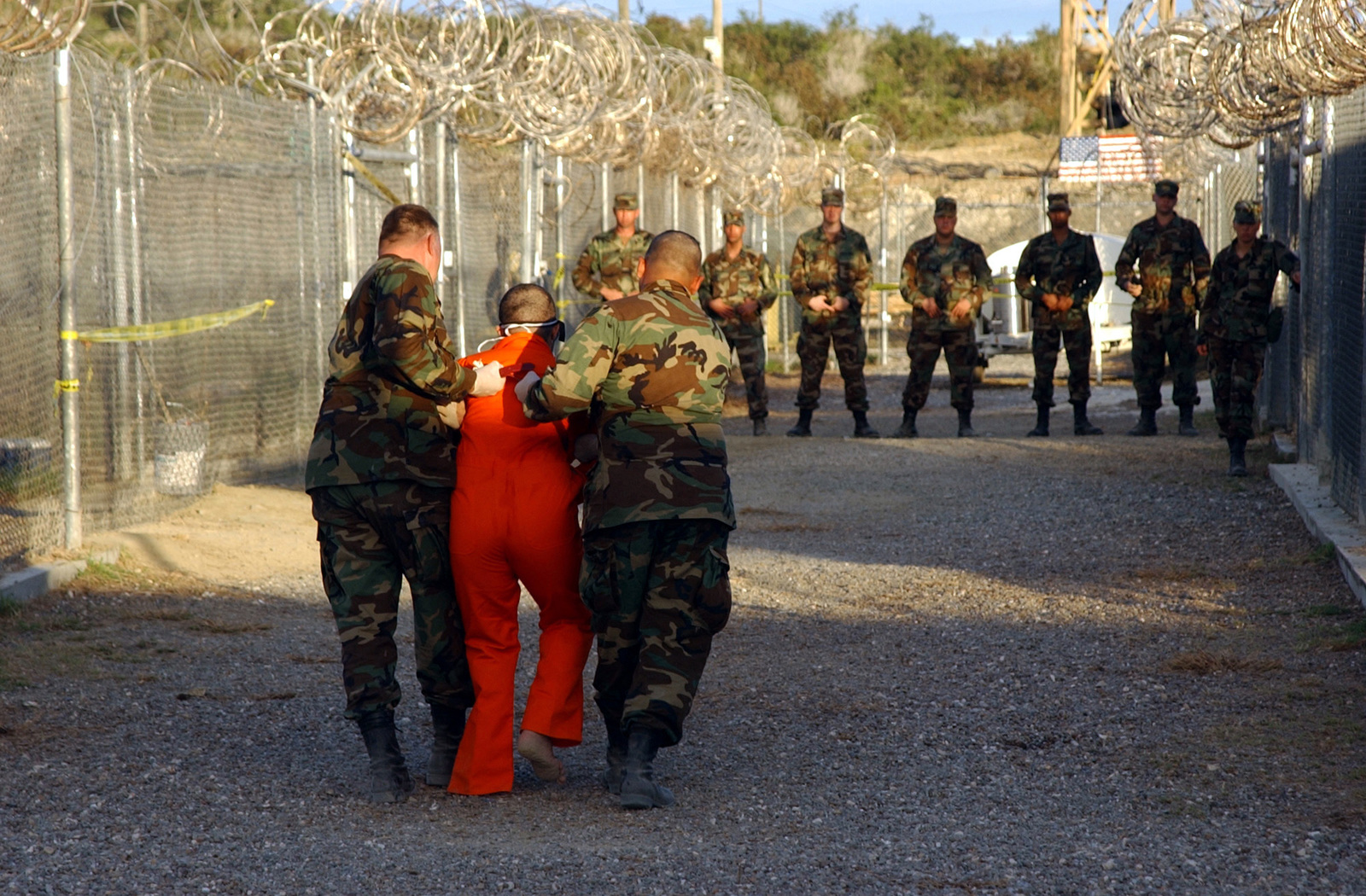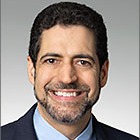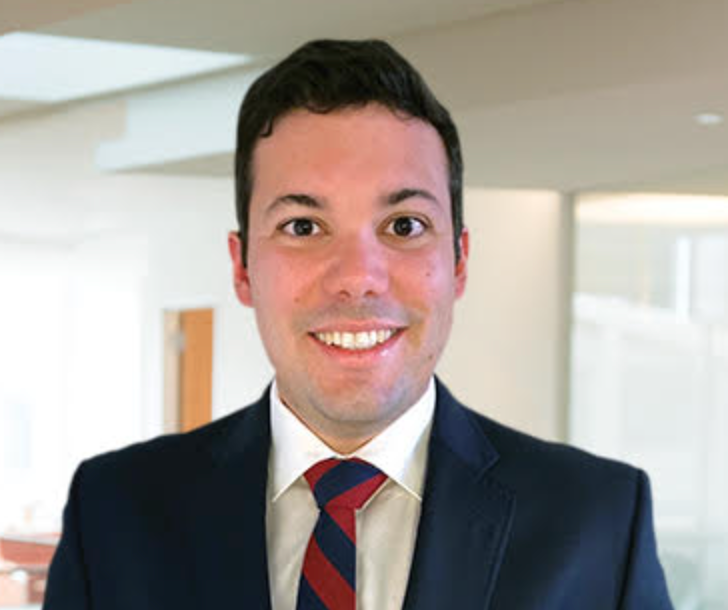When Is a State Secret Not a Secret?
In oral argument in United States v. Zubaydah, the court seemed to take seriously the government’s invocation of the state secrets privilege to protect information that seems very much in the public domain.

The Supreme Court has not decided a state secrets privilege case in a decade. This term, however, the justices will decide two. On Oct. 6, the Supreme Court heard oral argument in the first one, United States v. Zubaydah, a case involving a request from Guantanamo detainee Zayn al-Abidin Muhammad Husayn (better known as Abu Zubaydah) for discovery of national security information to use in foreign proceedings.
Is information confirming the location of a post-9/11 CIA black site in another country, where a terrorism suspect was subjected to so-called enhanced interrogation techniques, properly designated as a state secret? Can related information about the detainee’s mistreatment be compelled while still concealing the location information? What role, if any, do the federal courts play in assessing the executive’s determination that compelling disclosure of related information is reasonably likely to reveal the location and harm national security? Can a court properly authorize discovery of information to assist foreign prosecutors in the investigation of clandestine CIA activity abroad after the executive has expressly declined such a request from the other country? These were some of the important questions raised in the parties’ briefing and at oral argument in Zubaydah.
Notably, the oral argument in Zubaydah did not show any sign that the Supreme Court is considering eliminating or limiting the privilege. On the contrary, the court seemed to take very seriously the government’s invocation of the privilege to protect information that seems very much in the public domain.
Background
A prior Lawfare post by Rohini Kurup set out the background of the Zubaydah case in great detail. In short, Abu Zubaydah, an alleged senior al-Qaeda official and former associate of Osama bin Laden, has been a law-of-war detainee at Guantanamo Bay since 2006. According to declassified materials, after his capture in Pakistan in 2002 but before being sent to Guantanamo Bay, Abu Zubaydah was subjected to the CIA’s enhanced interrogation program at several black sites in foreign countries. Among other things, Abu Zubaydah was waterboarded 83 times in one month and deprived of sleep for 11 consecutive days. He believes, as has been reported widely, that one of the black sites was in Poland.
In 2010, Abu Zubaydah’s lawyers filed a complaint in Poland, seeking to hold Polish officials responsible for his alleged torture in the country. The Polish government requested information from the United States, including from two former CIA contractors involved in his interrogation. The request was made under the mutual legal assistance treaty (MLAT) between the two countries, but the U.S. denied Poland’s MLAT request, citing national security concerns. The Polish government then closed the investigation.
Abu Zubaydah’s attorneys then filed suit in the European Court of Human Rights and obtained an order requiring Poland to reopen his case. Then, seeking to support the inquiry in Poland, Abu Zubaydah went to federal court in Washington, seeking the same testimony from the two former CIA contractors that the U.S. government previously refused to provide under the MLAT. He relied on 28 U.S.C. § 1782(a), which authorizes district courts to order discovery for use in litigation outside the United States. Because the purpose of the statute is to assist litigation in a foreign proceeding—here, a criminal investigation into the treatment of Abu Zubaydah by Polish nationals during his detention in 2002 to 2003—the information sought would necessarily have to be relevant to Poland, effectively revealing the location of the black site. The federal government successfully asked the U.S. District Court for the Eastern District of Washington to block the subpoenas for that testimony, saying that the locations of the black sites remain a state secret. As relevant to Abu Zubaydah, then-CIA Director Mike Pompeo asserted the privilege to block the requested discovery, claiming that it was critical for U.S. national security to protect the identity of the CIA’s foreign partners because the CIA’s counterterrorism efforts and clandestine relationships are largely based on the trust of those partners, who in turn rely on the CIA’s commitment to confidentiality.
A three-judge panel of the U.S. Court of Appeals for the Ninth Circuit reversed, holding that discovery might be able to proceed as to nonprivileged information relating to Abu Zubaydah’s conditions of confinement and the circumstances of his interrogation. The panel remanded the case to the district court to determine if there is nonprivileged information that could be segregated and thus might be properly subject to discovery proceedings. In a sharply divided decision, over the dissent of 12 judges, the full court of appeals declined to rehear the case. The federal government then asked the Supreme Court to take up the case, arguing that the Ninth Circuit ruling “poses significant risks to the national security.” The Supreme Court granted review and held oral argument on Oct. 6.
Counsel for the Government
At oral argument in the Supreme Court, Acting U.S. Solicitor General Brian Fletcher defended the government’s assertion of the state secrets privilege. Fletcher argued that the courts should defer to the CIA director’s sworn declaration explaining that any information confirming the location of a black site, when the United States has promised confidentiality to partner countries, would harm national security. Justice Clarence Thomas chimed in right away asking why, if the contractors had testified previously about their treatment of Abu Zubaydah and other detainees, their doing so here would reveal state secrets. Fletcher explained that the context is different here, as the contractors’ testimony would be relevant to the Polish inquiry only if the black site was in Poland. In contrast, when the former CIA contractors testified previously, they were doing so in federal district court and before the military commissions without disclosing any information that would reveal the location of the CIA black site.
Justices Elena Kagan and Sonia Sotomayor, and later Chief Justice John Roberts, asked whether and how much a court should defer to the government on the question of whether or not the testimony can be tailored to avoid disclosing the sensitive information—here the location of the black site. Sotomayor suggested that it should be the district court’s call. Fletcher responded that the district court here correctly found that removing any mention of Poland would be insufficient to protect the state secrets. The district court understood that the only reason a court here would grant the subpoena to assist Poland’s inquiry is if the testimony were relevant to conduct that happened in Poland, which is precisely what the CIA director said might harm national security.
Several justices asked about what would happen if Poland acknowledged it was the location of the black site. Stating the obvious, Fletcher said that fact may well change the CIA director’s assessment of the national security harms. Justice Stephen Breyer thought that the president of Poland had officially conceded that Poland was indeed a black site location, to which Fletcher replied that these were unofficial comments of the former president, but that the Polish government has refused to provide any information relating to the CIA’s detention and interrogation of terrorism suspects in their country.
Kagan responded that at some point it becomes farcical if everyone knows that the black site was in Poland. Put simply, at some point, the information is no longer a secret. Fletcher explained that any such concern would be addressed in the government’s declaration discussing the national security reasons for withholding the information. The declaration needs to explain why the information would harm national security if revealed, and the declaration here did so, answered Fletcher. This isn’t close to farcical, he added. Fletcher emphasized that intelligence partners abroad must be able to trust the U.S. to maintain confidentiality and that confirmation from the former CIA contractors would similarly harm national security because it would be traced to the U.S. government. Fletcher explained that to conclude otherwise, as the Ninth Circuit did, would improperly second-guess the executive’s assessment of the harms that disclosure might pose to national security. On these key points, Fletcher received no meaningful pushback.
Counsel for Abu Zubaydah
Counsel for Abu Zubaydah, David Klein, started his argument by saying that he is not planning to ask the contractors if their conduct took place in Poland. He said Polish officials have other adequate information about that. They only need to know what happened to Abu Zubaydah while detained in 2002 and 2003 (where he believes he was in Poland), and that information is not privileged given that the former contractors had testified previously about Abu Zubaydah’s treatment.
These assurances puzzled many of the justices. Thomas asked Klein why, if the information has already been disclosed, he needs this subpoena. Thomas noted that the whole point of Klein’s effort is to tie the torture to Poland. After all, if the conduct did not occur in Poland, it would not be relevant to the proceedings in that country.
Klein had some trouble responding to that directly, other than to reiterate that he just wants information on how Abu Zubaydah was treated. But Justices Amy Coney Barrett and Kagan too jumped in and emphasized that the information he was seeking was only relevant to show torture that happened in Poland, as did Justice Samuel Alito at a later time in the argument. This case is about attempting to draw a nexus between the torture and Poland, which is precisely what the government claims is a state secret, Alito said. He added that he otherwise did not see what Abu Zubaydah needed the subpoena for or why.
Klein then argued that the existence of the black site in Poland was not really secret given that, among other things, the former president of Poland acknowledged publicly that he approved the site. That did not seem to gain much traction. Barrett and Roberts, for example, pushed back, stating that what Klein really wanted was the United States to acknowledge the existence of a CIA black site in Poland. In response, Klein largely reiterated that he did not need the CIA or a CIA employee to officially reveal the location of the site. Rather, Klein wants the former contractors to testify as to how Abu Zubaydah was mistreated by the CIA during a specific period of time—a time period during which the Polish prosecutors believe Abu Zubaydah was in Poland. Klein also argued that the Ninth Circuit was correct in saying that the location of the black site was no longer a secret.
Wild Card Subjects
There were also several questions from Breyer and others asking why Klein could not just get the information about Abu Zubaydah’s treatment, if that is really what he wants, from Abu Zubaydah himself. Klein said that security restrictions at Guantanamo would not allow it. On rebuttal, however, Fletcher said no request has been made by counsel for that testimony to assist the Poland inquiry. And if such a request is made, testimony possibly could be given, subject to procedures required to prevent the disclosure of classified information. Justice Neil Gorsuch insisted that Fletcher file a follow-up letter informing the court of whether Abu Zubaydah could be made available to testify about what happened to him, to which Sotomayor added that she would want a commitment that the state secrets privilege (or any other privilege) would not be invoked to categorically bar Abu Zubaydah’s testimony. That letter likely will simply reiterate what Fletcher tried to say at argument—Abu Zubaydah can be made available for questioning subject to the protective orders in effect in the military commission, which screens statements before they are made public to prevent disclosure of classified information.
Always one to bring a broader lens to a case, Breyer, expressing surprise at Abu Zubaydah’s continued detention and the pendency of his habeas petition filed 14 years ago in district court, asked why Abu Zubaydah is still being detained now that the United States is out of Afghanistan. Fletcher responded that Abu Zubaydah has recently made that argument in his habeas case. Fletcher later added that the government’s position is that law-of-war detention is still lawful as the United States continues to engage in hostilities against al-Qaeda. That is a huge question for a future case, but the court would not be expected to opine on it here.
Earlier in the argument, Gorsuch inquired as to whether the government waived the state secrets privilege by releasing information on the same subject matter—namely, about the general conditions of confinement and the circumstances of interrogation of Abu Zubaydah and other terrorism suspects detained in CIA black sites across the world. The government pushed back on that suggestion. Fletcher explained that the waiver of classified information or state secrets occurs only when the government officially acknowledges precisely the information at issue. And, here, while the government has disclosed the conditions of confinement and the enhanced interrogation techniques used on Abu Zubaydah without revealing the location of those interrogations. And it has never officially disclosed the location of the black site where that interrogation took place.
Sometimes what is not asked turns out to be the most telling feature of an oral argument. Here, for example, throughout the argument, there was very little questioning of the validity of the state secrets privilege and there was no suggestion that the court is poised to overrule to limit the doctrine. There was one question from Justice Brett Kavanaugh asking the basis of the privilege and whether Congress can change it (the latter part of the question foreshadowing the state secret issue presented in the upcoming Fazaga case). The government responded that the privilege is firmly rooted in the law of evidence and has constitutional roots as well. There was no meaningful follow-up. In all, the tenor and focus of the argument seemed to show general comfort with the doctrine and broad acceptance of the need to defer to the executive in deciding when information implicates national security. The questions here were primarily about whether that information could be effectively excised from the sought testimony. On that, it seemed the government is likely to prevail, unless Kagan can convince four others that the invocation is farcical here, and that seems doubtful as it is not even clear that Kagan believes that.
Perhaps seeking to avoid having the court broaden or further entrench the state secrets privilege in this case, Sotomayor seemed to suggest an easy, alternative path for the government to secure a reversal of the Ninth Circuit’s judgment. In a question to Fletcher, she suggested that the government’s denial of the MLAT may be dispositive and that Abu Zubaydah’s discovery request could be characterized as an attempt to circumvent the official denial of the MLAT request. In other words, a court cannot grant information to a foreign government (or a person seeking to assist a foreign government’s inquiry) after the executive branch has denied a formal MLAT request for the very same information. Such a ruling would allow the Supreme Court to rule for the government and deny the subpoena while avoiding the need to discuss the breadth of the state secrets privilege.
In short, it is unlikely that the Ninth Circuit’s decision will stand after the Supreme Court issues its opinion, which is expected sometime after January. The court seems reluctant to second-guess the government’s assertion that the compelled disclosure of the contractors’ testimony will harm national security. The real question appears to be whether the court will resolve this case on the basis of the state secrets privilege or Sotomayor’s proposed alternative grounds.
In modifying the Roman maxim “Inter arma silent leges” (“In time of war the laws are silent”), Chief Justice William Rehnquist once remarked that the “laws” of the United States will “not be silent in time of war, but they will speak with a somewhat different voice.” What that “voice” might sound like in this case will be for the court to decide, and rest assured that we will be listening closely.





-final.png?sfvrsn=b70826ae_3)
